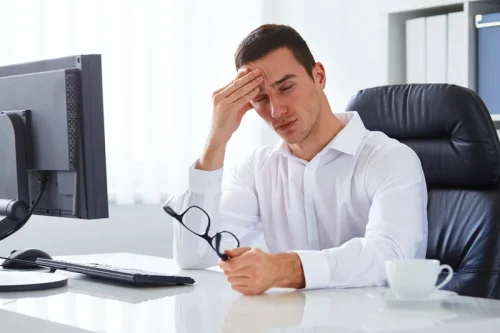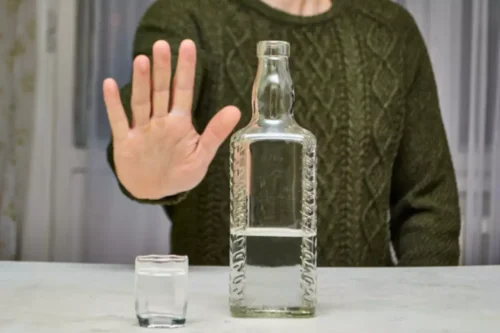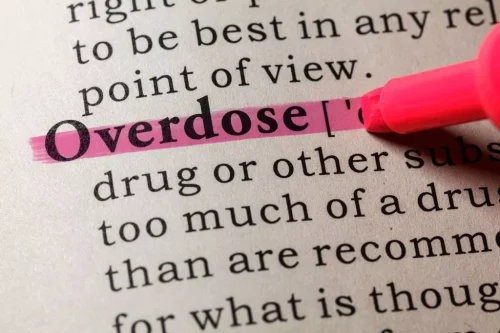
Each stage is necessary for sleep to feel refreshing and for vital processes like learning and memory consolidation to occur. How much alcohol you drink and when you drink it can both influence sleep. Things are a little more complicated for those with an alcohol abuse problem.
Drinking Water Before Bed
The brain then moves on to the next stage of light sleep, but there is an increase in brave wave frequency, followed by a further slowing down. This process of powering up and then slowing down helps to further slow activity in the brain. Your brain spends more time in this stage of sleep than in other stages. At the beginning of the NREM cycle, within seconds to just a few minutes after nodding off, alpha and theta brain waves cause eye movement to slow down.
Is Your Troubled Sleep a Health Risk?
Ideally, you wouldn’t rely on medications to get to sleep, but if nothing else is working you might have to. After all, not getting any sleep isn’t an option, and long-term sleep deprivation can contribute to health problems and even suppress your immune system. Sometimes you know exactly what caused your insomnia, be it a stressful day at work, a fight with a partner or too many “Black Mirror” episodes late at night. If your lack of shut-eye is caused by something temporary, it will probably be temporary, too, and a quick fix like taking medication isn’t a problem. There are many styles of yoga including Ashtanga, Bikram, Kundalini, and restorative yoga. Additional benefits of yoga include increased muscle strength and tone, improved sleep, and increased flexibility.

Types of Personality Disorders: A Comprehensive Guide to Personality Disorders and Treatment Options
- Humans are creatures of habit and when it comes to sleep, even more so.
- The brain also begins to repair some of the damage and shrinkage you may have experienced while drinking.
- In this blog post, we’ll discuss key signs that indicate it’s time to seek professional help for alcohol addiction, along with the treatment options available.
- But they may not be prescribed beyond this as there’s a risk of side effects like withdrawal, rebound insomnia, addiction, and overdose when mixed with alcohol.
- A person should not drive when they have consumed over the recommended legal amount of alcohol, even if they have made attempts to sober up.
- People in recovery are often more likely to have problems with sleep onset than with sleep maintenance, which is why some might conclude that they can’t sleep sober.
Alcohol may be consumed in beer, wine, and hard liquors like vodka, rum, gin, and whiskey. It is more often consumed at night, also called a nightcap, and may negatively affect your sleep. While alcohol can make you feel tired at first, it can also disturb your sleep as it wears off. Research from 2024 shows this change to sleep architecture persists across consecutive nights of pre-sleep alcohol. Alcohol can cause insomnia — or sleep problems that look like insomnia — in a few different ways.
- Sleep disorders like insomnia can co-occur with alcohol abuse, and treating insomnia can improve a person’s sleep quality while in recovery.
- If you want to learn how to sleep without alcohol, examining your bedtime routine is perhaps the most important first step.
- The goal of cognitive behavioral therapy for insomnia (CBT-I) is to change sleep habits as well as any misconceptions about sleep and insomnia that may perpetuate sleep difficulties.
- Those with a substance abuse problem should seek medical advice on how best to quit alcohol and treat their insomnia.
- While some of these changes can be uncomfortable for some time, they will eventually begin to improve the longer you abstain from alcohol use.
- If you’re in recovery and having sleep problem, it’s important to discuss the situation with your doctor.
Enhanced Physical Health

Studies suggest that generally, insomnia symptoms are most challenging during the first few days of quitting. This is when the body is actively detoxifying, https://ecosoberhouse.com/ resulting in restlessness and unstable sleep patterns. This period lasts about a week for most people, barring those with severe addiction.
- FYI, sleep debt is measured against your sleep need — the genetically determined amount of sleep you need.
- Alcohol use and dependence appear to interfere with circadian rhythms—biological patterns that operate on a 24-hour clock.
- While drinking alcohol before bedtime may help you feel relaxed and sleepy, enjoying a nightcap puts you at risk of experiencing repeated wakings and low-quality sleep later in the night.
- If you have chronic insomnia, taking sleep aids may not be helpful long term, because they don’t actually address what’s causing your sleep disturbance.
- Alcohol intoxication is a temporary condition that can impair coordination, decision-making, impulse control, and other functions, which can increase the risk of harm.
- People in alcohol recovery take a long time to fall asleep, have problems sleeping through the night, and feel that their sleep is not restorative.
When considering natural sleep aids, it’s essential to consult a healthcare provider. That’s because some supplements can interact with medications and may not be suitable for everyone. Third-party tested supplements are preferable to ensure product quality and safety.
Overall, it’s crucial to refrain from drinking alcohol right before bed so you can wake up feeling rested and ready to take on the day. Alcohol can cause or aggravate a wide range of health issues, from liver diseases to heart problems. Once you expel it from your life, the body can invest energy once how to sleep without alcohol assigned to battling alcohol’s toxic effects into nurturing and rebuilding itself. Your dietary choices significantly affect the quality of your sleep. Consuming balanced meals throughout the day, avoiding caffeine, sugar, and heavy meals close to bedtime can go a long way in improving sleep quality.
Avoid Caffeine and Nicotine
The impact of drinking on insomnia may be particularly acute in older adults. For this reason, a person may need to drink increasing amounts to fall asleep, increasing the risk of alcohol abuse and addiction. Researchers have found that insomnia is a risk factor for alcohol abuse. There are lots of small things you can do to practice better sleep hygiene.


If you’ve stopped drinking alcohol, but are still having sleep issues, be sure to reach out to a sleep specialist. If you have alcohol use issues, you may experience insomnia when drinking, during withdrawal, and months or years after going sober. And insomnia may increase your risk of relapse when you quit drinking.
Insurance Information
Many of our clinicians have their own personal experience in long term recovery which lends them to an even better understanding of what our patients are experiencing. Our staff is highly skilled in choosing the most effective therapeutic modality for each client’s needs, to give them the best chance of securing the recovery process that will change their lives. This is why clinicians will offer weekly updates to families as well as concrete tools for families to utilize as they journey through this illness with their loved one. Those tools will be offered by the patient’s individual clinician as well as at our free Family Night on the first Wednesday of each month, offered to anyone in the community.


